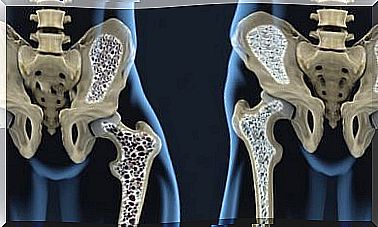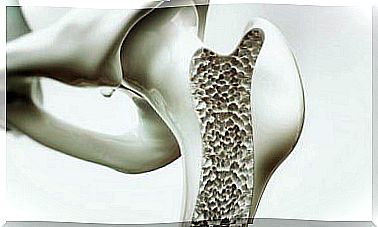What Is A Sustainable Diet?
Have you heard of the sustainable diet? Environmental pollution is one of the processes of greatest concern at a global level. The emissions of gases and waste products into the atmosphere could condition the survival of humans as a species in the coming decades. For this reason, a series of measures are being put in place. Some of them are of a dietary nature.
We are going to tell you what this eating model consists of that goes beyond the concept of health. In addition to ensuring the proper functioning of the body, it cares about the origin of the food and the environmental impact of its production. You want to know more? Keep reading.
The sustainable diet: a respectful eating model
The sustainable diet, as stated in an article published in the journal The Proceedings of the Nutrition Society , has as one of its main objectives to reduce the ecological footprint of human beings on the planet. This is using less energy and chemicals for livestock and agriculture.
In addition, it defends the purchase of indigenous foods, thus reducing fuel costs derived from international transport. By respecting a series of very basic guidelines, gas emissions into the atmosphere can be significantly reduced.
On the other hand, this dietary model prioritizes the consumption of products of plant origin, since its renewal rate is higher than that of food from animals. The impact on nature’s food chains will be less and, in this way, the disappearance of species will also be avoided, conditional on overconsumption and overexploitation of resources.

Sustainable and healthy
Anyway, don’t think that sustainable diet only cares about the environment. The dietary pattern that he proposes is also beneficial for health.
In fact, the consumption of fruits and vegetables in abundance is associated with a better functioning of the metabolism. A review of studies published in 2017 positively linked the intake of plant products with a reduction in the risk of developing cardiovascular diseases.
This condition is due, among other things, to the contribution of flavonoids from fruits and vegetables. Flavonoids are antioxidant and anti-inflammatory compounds found in nature in small proportions.
Flavonoids are often pigments that are responsible for bringing color to food. They are capable, according to research collected in the Journal of Medicinal Food , of reducing the risk of developing neurological diseases, such as Parkinson’s disease.
Less processed with the sustainable diet
As we have seen, the sustainable diet defends the consumption of local products, with a low degree of industrial processing. This restricts the intake of all those foods that have been subjected to long refinements, which implies a high energy requirement.
These ultraprocessors are also responsible for the development of many complex pathologies. An example is diabetes. This endemic disease is associated with the regular dietary intake of sweet foods rich in added sugars. There is a systematic review from 2017 that shows that the presence of these foods regularly in the diet conditions metabolic health.
Not only the metabolism will benefit from this change in trend when it comes to food. The cardiovascular system as well. We have already commented that eating vegetables reduces the risk of heart problems.
The ultra-processed restriction is also capable of exerting this effect. Experts say that foods rich in trans fats are mainly responsible for the systemic inflammation that causes atherosclerosis, with negative repercussions on blood circulation.

Sustainable diet improves local economy
Last but not least, we must emphasize that the sustainable diet model is beneficial for the local economy. Consuming local products increases the income of small producers.
In this way, the presence of multinationals in the primary sector, many times responsible for abusive working conditions and wages , is reduced. Sustainable diet not only improves health and respects the environment, but is also capable of helping livestock and agricultural workers.
Stick to this healthy, respectful and sustainable model
Now that you know what a sustainable diet consists of and what its advantages are, you can take some advice from it. Not only is it good for your health, it also respects the environment and the rights of many workers.
Implementing this feeding model will help avoid inequalities and prevent the extinction of animal species. As if all this were not enough, the risk of developing complex pathologies associated with an unhealthy diet is reduced.
The next time you go shopping, opt to go to a local store rather than a large chain store. Also, check the food labels for more information about the food production method. Increase the consumption of local and organic vegetables.









